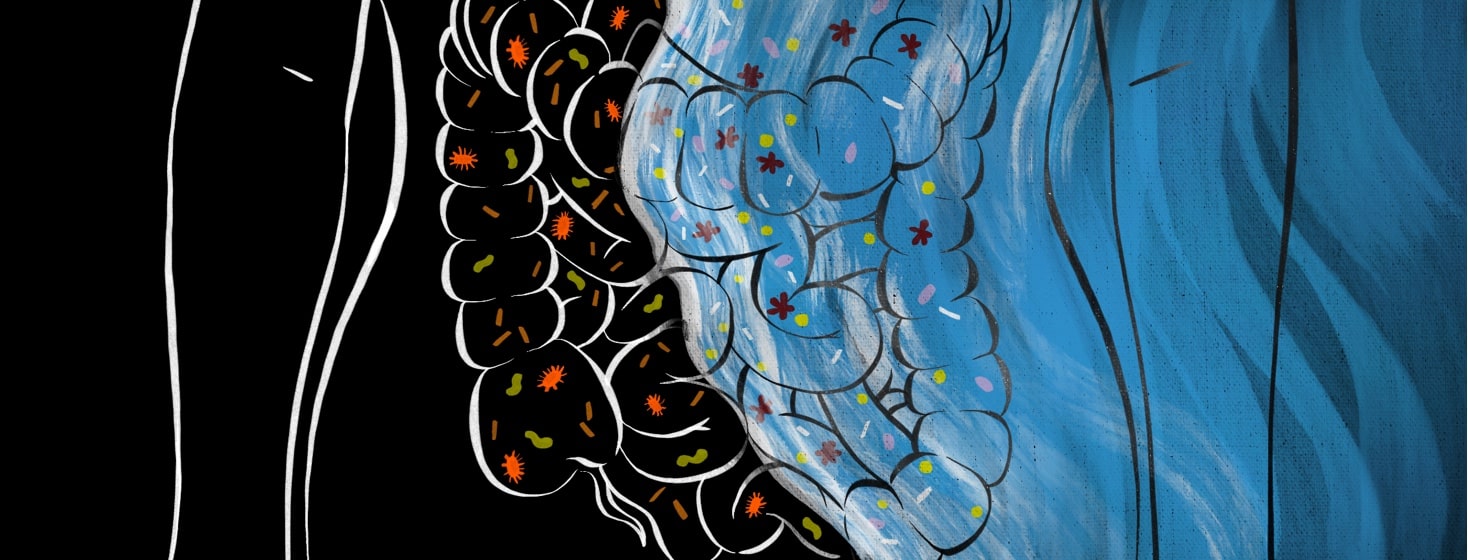What is the Connection Between Gut Health and Alzheimer's Disease?
Alzheimer's disease is the most common type of dementia worldwide. However, there are few treatments for it. Scientists believe that Alzheimer's is caused by clumps of a protein called amyloid-beta plaques. These grow around brain cells, causing inflammation and damaging the cells.1
Research has found a link between Alzheimer's and the microorganisms that live in the gut. Studies have shown that the brain and the bacteria in the gut can "talk" to each other. Changing your diet can improve your gut health by altering which microorganisms live in your gut and what molecules they make. Researchers are now interested to see if improving gut health could reduce your risk of Alzheimer's disease.1
What is the connection between gut health and the brain?
Our gut is a very important part of our immune system. It helps defend the body against any bacteria we might have eaten. It is also full of its own "good" bacteria. They help us digest food and make vitamins our body needs. These bacteria can also create molecules that travel through the body and directly affect our brain.1
Some of these molecules are helpful. They let us know what nutrients our bodies need or can even change how well we learn or behave. Other molecules can be harmful. They can cause inflammation in our brain and throughout the body. This can contribute to Alzheimer's years before there are any signs of dementia. They can even form protein plaques similar to those seen in Alzheimer's.2
However, your gut bacteria is not set in stone. It changes all throughout your life. Researchers now have proof that changing your diet can change your gut bacteria.2
Gut bacteria and Alzheimer's
Aging and poor diet combined with inflammation from the gut are thought to be important risk factors for Alzheimer's.1
The Mediterranean diet
However, changing to a less inflammatory diet like the Mediterranean diet is shown to decrease your risk. Food-based therapy can directly affect the microorganisms living in your gut to improve both gut and brain function.1
The "Western diet" that is traditionally eaten in the United States often involves foods that are high in saturated fat and simple carbohydrates like fried foods and sweets. It is associated with a higher risk of Alzheimer's and other types of dementia. These foods can cause inflammation in the body and the growth of "bad" bacteria.2
The Mediterranean diet focuses on unsaturated fats like olive oil, fruits, vegetables, and lean proteins like fish and chicken. It recommends little red meat or processed foods. These foods are anti-inflammatory and encourage "good" bacteria growth. They can also reduce your risk of diabetes.1,2
Keto diets
The Mediterranean diet is similar to the keto diet. The keto diet encourages eating more fats and less simple carbohydrates. However, it has less emphasis on the kind of fat that you eat. Studies have shown that it is effective to treat certain forms of epilepsy and improve gut health.2
Probiotic supplements
Probiotic supplements are another way to improve gut health. They can be found in most grocery and health food stores.
The supplements contain "good" bacteria and can be taken by anyone. They have been shown to reduce inflammation in both the gut and brain.1
Gut health and and Alzheimer's
A healthy diet can do more than just reduce your risk of Alzheimer's. It can also reduce your risk of diabetes, gastrointestinal cancers, and heart disease.
It may be helpful to add items like olive oil, fish, and probiotics to your usual diet. If you are interested in learning more about nutrition, speak to your doctor or a registered dietitian.2

Join the conversation